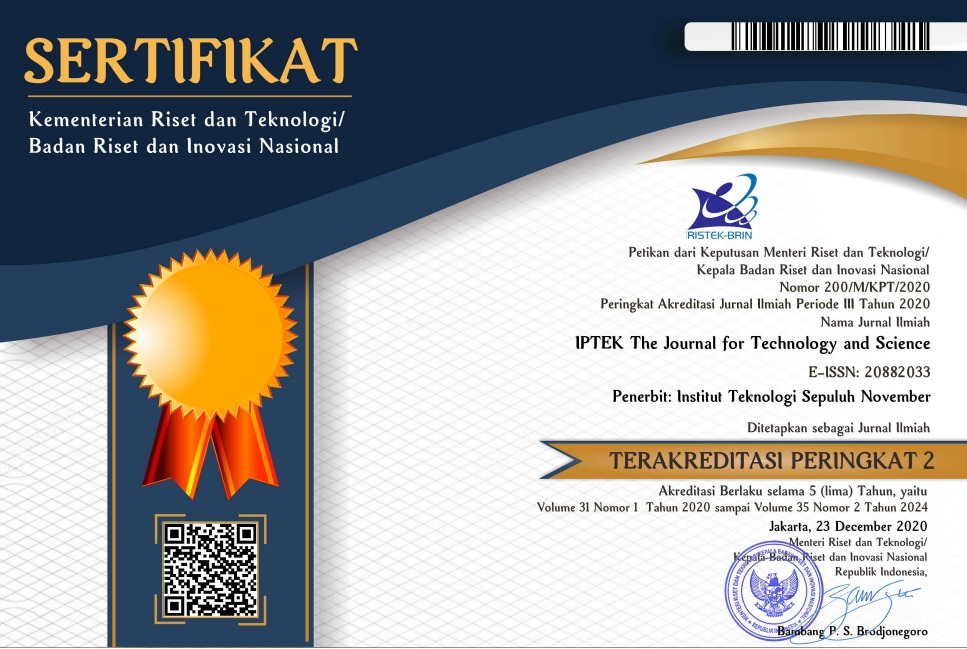The Impact of Outbound Training Activity on Organization Mission Statement (Case in Education Mission Statement MMT-ITS)
Abstract
Keywords
Full Text:
PDFReferences
Robbins, S.P. (2009) Organizational Behavior. 13th Edition. New Jersey: Prentice Hall Pearson Educational International.
Wagner, R.J., Baldwin, T.T., & Roland, C. (1991). Outdoor Training: Revolution or Fad? Training & Development Journal, 45(3), 50-57.
Buchori, S. (2011). “Pelatihan Pembentukan Tim Untuk Meningkatkan Kohesivitas Tim pada Kopertis V Yogyakarta,” Jurnal Psikologi, Vol. 38 No. 1, pp. 40 – 51.
Cahyadi, A. (2012), Intervensi Team Building Training Untuk Meningkatkan Kepercayaan terhadap Rekan Kerja dan Kualitas Teamwork di PT. S, Master Thesis, Universitas Indonesia.
Setianingtyas, A.F. (2013). Pengaruh Pelatihan Team Building Untuk Meningkatkan Kohesivitas Tim Kerja di Inna Garuda Yogyakarta, Naskah Publikasi Master Thesis, Universitas Ahmad Dahlan Yogyakarta
Arifin, Z. (2012). Tren dan Inovasi Dalam Pendidikan Manajemen dan Bisnis di Program MM UII Yogyakarta, Proceeding Seminar Nasional APMMI, MK-2-1.
Falah, N. (2014).”Efektifitas Outbound sebagai Metode Pembelajaran (Studi pada Outbound Mahasiswa Jurusan BKI Fakultas Dakwah dan Komunikasi UIN Sunan Kalijaga Yogyakarta)”, Jurnal Hisbah, Vol. 11, No. 1. Pp. 53 – 74.
Marimuthu, K.N. & Mukherjee, S. (2014). Impact of Out-Bound Training (OBT) on MBA Students in Developing Their Leadership Skill: A Study on South India, International Journal of Innovative Research & Development, Vol. 3 Issue 12, pp. 384-391.
Buchori, S., Ibrahim, M., dan Saman, A. (2016). “Pengaruh Character Education Training meals Outbound Training Untuk Peningkatan Kejujuran dan Integritas,” Jurnal Psicologi Pendidikan & Konseling, Vol. 2 No. 1, pp. 12 – 19.
Handiwibowo, G. A. (2016). Evaluasi Strategi Pada Misi Penunjang Proses Belajar Mengajar Yang Inovatif Pada Prasarana Di MMT-ITS Dengan Pendekatan Importance-Performance Analysis (IPA). In Seminar Nasional Manajemen Teknologi (Vol. 24, No. MMT - ITS, pp. A-1). MMT - ITS.
David, Fred R. (2013). Strategic Management: Concept and Cases, 14th edition, Pearson, Essex.
Mulyono & Asti, B. M. (2008). “Smart games for Outbound Training.” Yogyakarta: Diva Press.
Dinçer, Ömer. (2006). Stratejik yönetim ve let me politikasi, Sekizinci Basim, Istanbul, Alfa Yayim Daytime.
Thompson, A.A. Jr., and Strickland III A.J. (1999). Strategic Management; Concepts and Cases, Irwin Mc Graw Hill, 11th Edition.
Eren, Erol. (2005). Stratejik yönetim ve let me politikasi. 7. Baski, Istanbul: Beta Basim Yayim Daytime.
Prodi MMT-ITS (2015). Pedoman Akademik MMT-ITS, Surabaya.
Latan, H. (2014). Teori, Konsep dan Aplikasi menggunakan GeSCA, Satu Nusa, Bandung
Solimun (2012). Pemodelan Persamaan Structural Generalized Structured Component Analysis (GSCA), Program Studi Statistika,
DOI: http://dx.doi.org/10.12962%2Fj20882033.v29i1.2990
Refbacks
- There are currently no refbacks.
IPTEK Journal of Science and Technology by Lembaga Penelitian dan Pengabdian kepada Masyarakat, ITS is licensed under a Creative Commons Attribution-ShareAlike 4.0 International License.
Based on a work at https://iptek.its.ac.id/index.php/jts.


